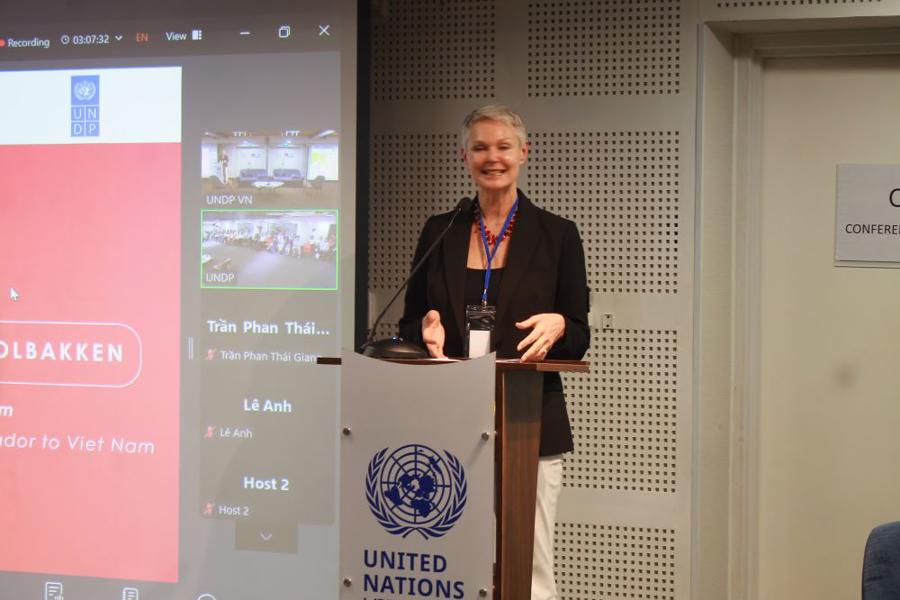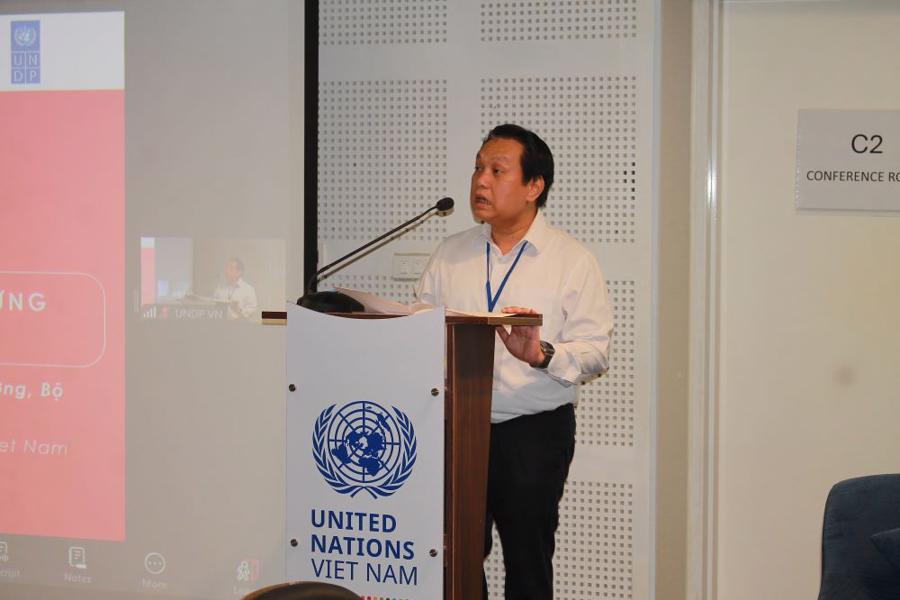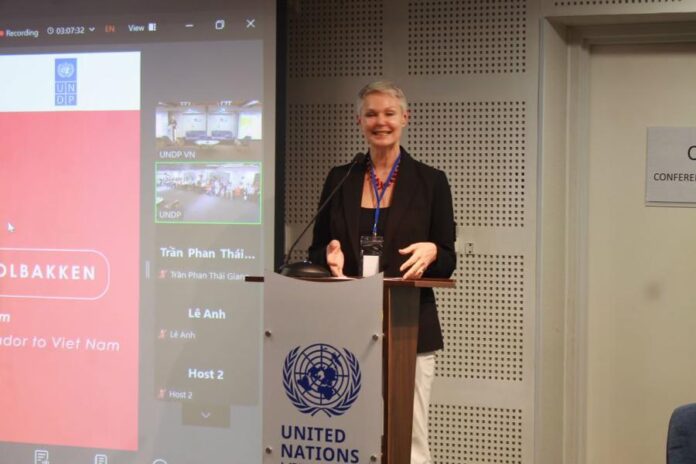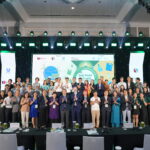On the afternoon of June 16, 2025, in Hanoi, the Embassy of Norway in Vietnam announced the Deposit-Refund System Research Report suitable for Vietnam. The report is expected to open up a new direction in the effort to manage plastic waste and promote a circular economy in Vietnam.
The announcement was made within the framework of a series of seminars on “Talking about Plastic 2025” by the Ministry of Agriculture and Environment in collaboration with the United Nations Development Program (UNDP) through the Vietnam National Plastic Action Partnership (NPAP) and the Embassy of Norway to celebrate World Environment Day 2025 with the message “Beat Plastic Pollution.”
PRACTICAL SOLUTION TO REDUCE PLASTIC POLLUTION
Ms. Hilde Solbakken, Norwegian Ambassador to Vietnam, said that for Norway, clean and healthy oceans are a national priority and a global responsibility. Accordingly, since 2018, the Norwegian government has launched a program to combat marine plastic and microplastic pollution with an initial grant of up to $100 million.
By 2024, Norway continues to commit to providing an additional $100 million to support global efforts in this field. Vietnam is one of the countries actively participating in the program, with the Ministry of Agriculture and Environment as Norway’s main partner in the region.

Ambassador Solbakken highly appreciated Vietnam’s strong national maritime development strategy, which emphasizes goals such as addressing pollution, protecting the sea and coastal environment, restoring ecosystems, and reducing marine plastic waste by 75% by 2030.
“The deposit-refund system can play a breakthrough role in realizing these goals and contributing to Vietnam’s net-zero emission commitment by 2050,” Ms. Solbakken said.
According to Ms. Solbakken, DRS is not only an environmental solution but also an effective tool for implementing the Extended Producer Responsibility (EPR) policy. “The polluter pays” – this is the fundamental principle of EPR, and the deposit-refund mechanism will help turn waste into a valuable resource while proactively and effectively mobilizing the private sector’s responsibility.
Norway is one of the pioneering countries in implementing the DRS system, especially for products such as plastic, batteries, end-of-life vehicles, tires, and packaging. In Norway, businesses establish Producer Responsibility Organizations (PROs), which are entrusted to set up and operate a system for collecting post-consumer products and packaging, thereby achieving a very high recycling rate – for example, over 90% for plastic bottles.
Presenting the DRS research report, Dr. Chris Sherrington, Head of Environmental Policy and Economics at Eunomia (a consulting organization in the field of waste management and sustainable resources), said that this model is entirely feasible in Vietnam if adjusted to suit socio-economic conditions, waste management infrastructure, and characteristics. of the domestic beverage market.
Accordingly, when buying plastic-bottled drinks or single-use packaged drinks (filtered water, soft drinks), consumers will have to pay an additional small deposit, about 1,000 – 2,000 VND/bottle. When finished using the product, bring the empty bottles, cans, and plastic packaging to the collection points to get the deposit back. The collection and refund points for empty bottles, cans, and packaging will be located at retail stores, restaurants, cafes, or collection points. This system not only helps increase the collection rate but also improves the quality of recycled plastic thanks to the separate collection of less contaminated packaging.
Notably, DRS is considered a powerful tool to support the implementation of regulations in the Law on Environmental Protection (amended in 2000 and 2024) related to Extended Producer Responsibility. Participating in the DRS system will help businesses optimize collection costs, be more transparent in fulfilling legal responsibilities, and improve recycling efficiency.
Currently, more than 40 countries and territories worldwide have applied DRS to single-use beverage packaging, including countries in Europe, the Americas, Africa, the Middle East, and Oceania. However, no Southeast Asian country has implemented this system. Therefore, Vietnam has the opportunity to take the lead in the region and become a model for neighboring countries to follow.
DRS CAN CREATE AN ADDITIONAL 6,400 JOBS IN THE BEVERAGE SUPPLY CHAIN
The report also forecasts practical benefits if DRS is successfully applied in Vietnam. Specifically, it is possible to collect and recycle an additional 21,000 to 77,000 tons of post-consumer beverage packaging annually, significantly reducing the amount of landfill, incinerated, or openly dumped waste. It is estimated that the system will help reduce 265,000 tons of CO₂ equivalent per year and significantly reduce marine plastic pollution.
In socio-economic terms, DRS can create about 6,400 formal jobs in the beverage supply chain. The indirect environmental impact of reducing greenhouse gas emissions and air, water, and soil pollution helps Vietnam save about 1,400 billion VND per year. These figures not only demonstrate the great potential of DRS but also affirm the system’s alignment with Vietnam’s long-term sustainable development goals.

Speaking at the event, Mr. Nguyen Hung Thinh, Deputy Director of the Department of Environment, Ministry of Agriculture and Environment, emphasized: “The Deposit-Refund System is a supportive tool that can bring about significant changes in waste management, especially when integrated with the EPR policy. Implementing DRS will not only contribute to efficient material recovery but also raise community awareness, thereby promoting the development of a strong circular economy.”
Also, according to Mr. Thinh, the report announcement is a meaningful activity in the series of events in response to World Environment Day 2025 with the theme “Beat Plastic Pollution.” This is an opportunity for Vietnam to demonstrate its strong commitment to building a circular economy and sustainable development.

At the seminar, manufacturing enterprises also shared many practical experiences in integrating PCR recycled plastic into the production chain – from circular packaging design to a roadmap for using 100% recycled materials. Contributions from the private sector and specific policy proposals are positive signals, paving the way for the development of a post-consumer plastic circular ecosystem in Vietnam.
“We believe that the research results will provide practical and feasible suggestions suitable for the practical conditions in Vietnam and are also an important premise to continue improving policies towards applying DRS in the near future,” Mr. Thinh emphasized.
A Deposit-Refund System for Beverage Containers: A Novel Approach to Plastic Waste Management in Vietnam
The Deposit-Return System (DRS) is an innovative model that empowers consumers to take an active role in sustainability. It encourages consumers to return their single-use beverage containers after use, receiving a refund of their initial deposit. This system is designed for convenience, with return points easily accessible at retail stores, hotels, restaurants, cafes, and dedicated collection centers.
“H&M and SYRE Aim to Make Vietnam the Global Hub for Circular Textile Manufacturing”
During their meeting with Prime Minister Pham Minh Chinh in Stockholm, the leaders of H&M and SYRE pledged to expand their green investments in Vietnam. With a proposed $1 billion recycling plant project, they aim to revolutionize the textile industry, embracing a circular economy model.
Recycling Bottles, Sowing the Seeds of a Green Future: Polytex Far Eastern and AEON MALL Spread Environmental Awareness at Eco Event 2025
Plastic bottles are not just waste, they’re opportunities for rebirth. From May 25th to June 5th, at Eco Event 2025, Far Eastern Polytex Vietnam, in partnership with AEON Mall, will spread the message of green living. With a state-of-the-art RPET plant now in Vietnam, the journey of recycling has been empowered and given new life.
Failure to Embrace Circular Economy Will See Logistics Businesses Left Behind
If logistics companies fail to embrace green practices and adopt a circular economic model, they risk facing significant challenges and falling behind in the global supply chain. The time to act is now, or businesses will face the consequences and struggle to keep up with the evolving demands of the industry.









































